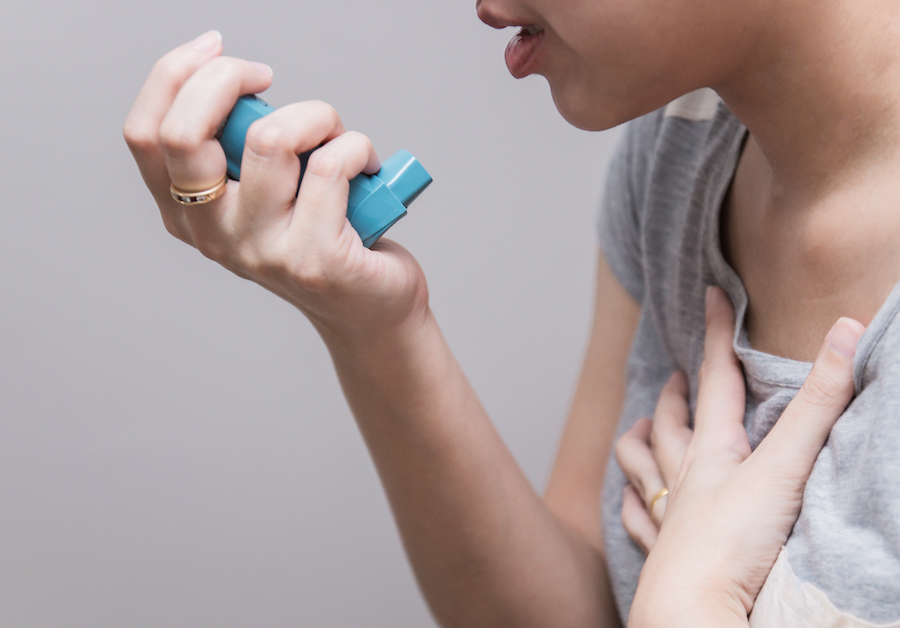What to do if someone you’re with is having an asthma attack
Only people who have asthma can fully understand how scary it is to have an attack in public. You struggle to breathe, are paralysed with fear and are often unable to speak to ask for help from a passerby.
If you have asthma, it means your immune system is extra sensitive to certain substances, like pollen or pet hair, causing inflammation, constriction, and excessive mucus production in your airways.
Attacks are probably more common than you think too, as new figures have revealed that someone in the UK has an asthma attack every three seconds.
The data from charity Asthma UK suggests that those with asthma are having more attacks every year than previously thought, as previous studies have estimated the average as being more like one every 10 seconds.
Whether you suffer from asthma or not, it’s imperative to know what to do if you spot someone who might be struggling in public, as asthma attacks can be potentially life-threatening.
We spoke to Sonia Munde, head of services at Asthma UK, to find out how you can best help in the event of an emergency.
How do you know if someone is having an asthma attack?
“Asthma can vary from person to person,” says Munde. This means that it can be difficult for people to identify when someone with the condition is having an asthma attack.
“Signs a person is having an asthma attack are if they’re wheezing a lot, have a very tight chest, they’re coughing a lot or if they’re breathless and find it difficult to walk or talk. It is also a sign of an asthma attack if their breathing is getting faster and it feels like they can’t get their breath in properly.”
Munde says that a person is having an asthma attack if their blue reliever (a type of inhaler) isn’t helping, or if they need to use it more than every four hours.
What should you do if someone is having an attack?
“It’s vital everybody with asthma, or those caring for someone with asthma, knows what to do in the event of an asthma attack. If you’re caring for someone with asthma, make sure that they carry their reliever inhaler with them, in case they need it.
If a person you’re with is having an asthma attack, make sure they “sit up and try to stay calm”.
Retrieve their reliever inhaler (usually blue), if they haven’t already, and instruct them to take one puff every 30-60 seconds, up to a maximum of 10 puffs.
Munde says that if the person appears to feel worse at any point or if they don’t feel better after using 10 puffs of their reliever inhaler, you should call 999 for an ambulance. “If the ambulance is taking longer than 15 minutes, we advise people to continue taking their inhaler every 30 – 60 seconds,” she adds.
What is the procedure afterwards?
“One in six people who have emergency treatment for an asthma attack have another attack within two weeks. Those who have had an asthma attack can cut their risk of having another attack with some simple steps,” says Munde.
“Whenever someone has an asthma attack, they should make an urgent appointment to see their GP or asthma nurse within 48 hours, so they can get a clear recovery plan and help prevent future asthma attacks.”
If you’re caring for someone with asthma, it’s important to make sure they continue to take their asthma medicines as prescribed, as it will make their airways less sensitive to asthma triggers, notes Munde.
“An asthma attack can make someone physically and emotionally tired, so it’s important to take rest and recover,” adds Munde.
You can find out more information on how to spot and treat an asthma attack on the Asthma UK website asthma.org.uk.
The Press Association
Latest posts by The Press Association (see all)
- Could brisk walking boost your heart? - April 16, 2025
- Best spring-to-summer plants to fill the colour gaps - April 15, 2025
- Catherine tells how ‘spiritual’ connection with nature gives her peace in busy world - April 15, 2025
- Why weeds are worth cultivating – and eating - April 14, 2025
- 5 top tips for cleaning your tech, from phones to laptops - April 14, 2025




















